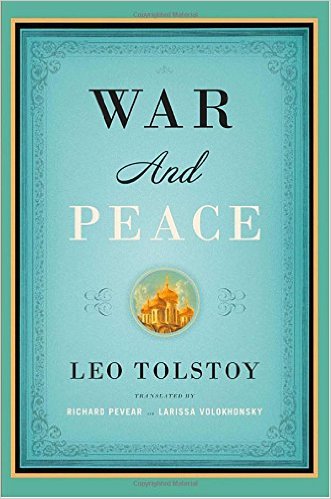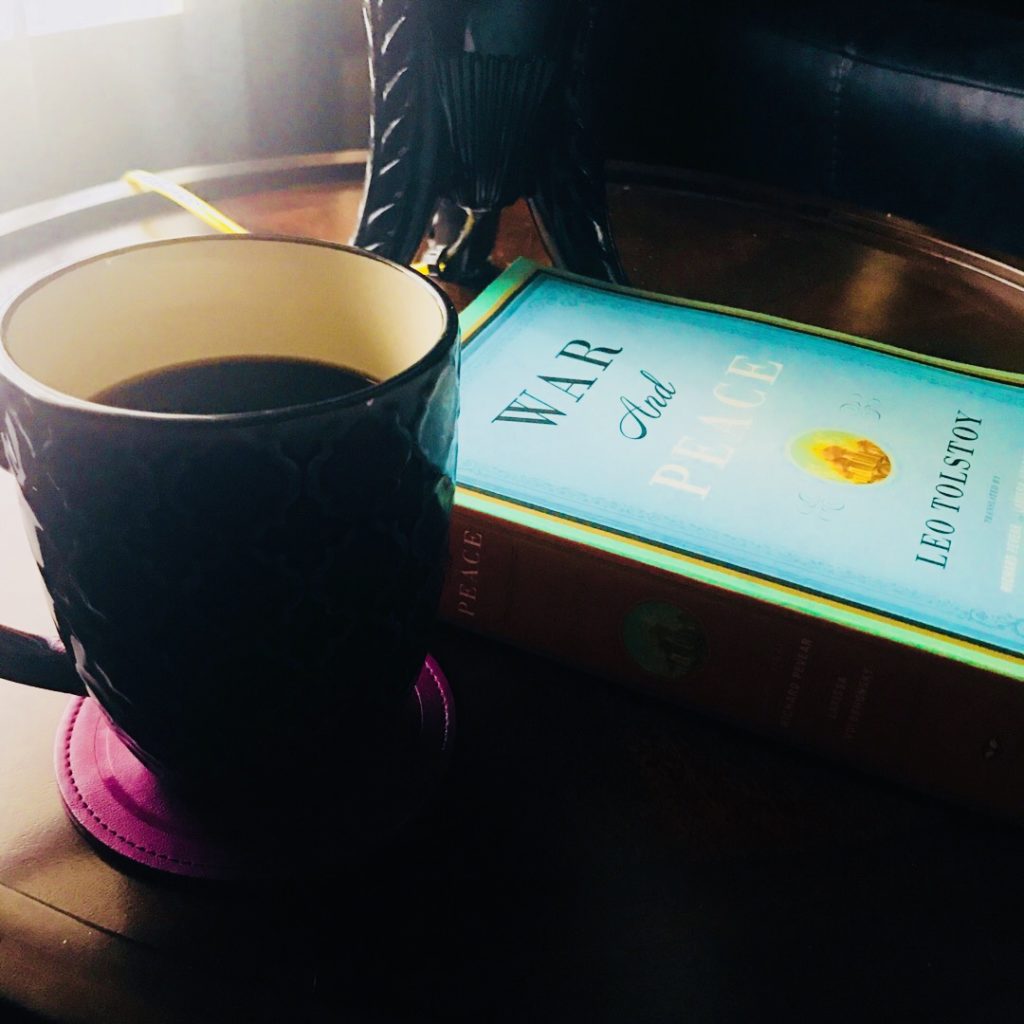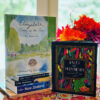I learned so much, and gained such perspective. The reading of this book was so much more than I ever imagined it to be.
“I should never, never have believed that one could be so happy,” she whispered to herself. A smile lit up her face but at the same time she sighed, and her deep eyes expressed a quiet sadness as though she felt, through her happiness, that there is another sort of happiness unattainable in this life and of which she involuntarily thought at that instant.”
The subject which wholly engrossed Natasha’s attention was her family […]. And the deeper she penetrated, not with her mind only but with her whole soul, her whole being, into the subject that absorbed her, the larger did that subject grow and the weaker and more inadequate did her powers appear, so that she concentrated them wholly on that one thing and yet was unable to accomplish all that she considered necessary. […] If the purpose of dinner is to nourish the body, a man who eats two dinners at once may perhaps get more enjoyment but will not attain his purpose, for his stomach will not digest the two dinners.
If the purpose of marriage is the family, the person who wishes to have many wives or husbands may perhaps obtain much pleasure, but in that case will not have a family.
If the purpose of food is nourishment and the purpose of marriage is the family, the whole question resolves itself into not eating more than one can digest, and not having more wives or husbands than are needed for the family – that is, one wife or one husband. Natasha needed a husband. A husband was given her and he gave her a family. And she not only saw no need of any other or better husband, but as all the powers of her soul were intent on serving that husband and family, she could not imagine and saw no interest in imagining how it would be if things were different.
Natasha and Pierre end up together at long last, after so many individual struggles. Their family life illustrated in the epilogue appears so settled and loving. Natasha is in a more mature, settled stage of life after so very much difficulty……she seems to be at peace.
“Only she lets her love of her husband and children overflow all bounds,” said the countess, “so that it even becomes absurd.”
Natasha did not follow the golden rule advocated by clever folk, especially by the French, which says that a girl should not let herself go when she marries, should not neglect her accomplishments, should be even more careful of her appearance than when she was unmarried, and should fascinate her husband as much as she did before he became her husband. Natasha on the contrary had at once abandoned all her witchery, of which her singing had been an unusually powerful part. She gave it up just because it was so powerfully seductive. She took no pains with her manners or with delicacy of speech, or with her toilet, or to show herself to her husband in her most becoming attitudes, or to avoid inconveniencing him by being too exacting. She acted in contradiction to all those rules. She felt that the allurements instinct had formerly taught her to use would now be merely ridiculous in the eyes of her husband, to whom she had from the first moment given herself up entirely—that is, with her whole soul, leaving no corner of it hidden from him. She felt that her unity with her husband was not maintained by the poetic feelings that had attracted him to her, but by something else—indefinite but firm as the bond between her own body and soul.
The general opinion was that Pierre was under his wife’s thumb, which was really true. From the very first days of their married life Natasha had announced her demands. Pierre was greatly surprised by his wife’s view, to him a perfectly novel one, that every moment of his life belonged to her and to the family. His wife’s demands astonished him, but they also flattered him, and he submitted to them.
Pierre’s subjection consisted in the fact that he not only dared not flirt with, but dared not even speak smilingly to, any other woman; did not dare dine at the club as a pastime, did not dare spend money on a whim, and did not dare absent himself for any length of time, except on business—in which his wife included his intellectual pursuits, which she did not in the least understand but to which she attributed great importance. To make up for this, at home Pierre had the right to regulate his life and that of the whole family exactly as he chose. At home Natasha placed herself in the position of a slave to her husband, and the whole household went on tiptoe when he was occupied—that is, was reading or writing in his study. Pierre had but to show a partiality for anything to get just what he liked done always. He had only to express a wish and Natasha would jump up and run to fulfill it.
It very often happened that in a moment of irritation husband and wife would have a dispute, but long afterwards Pierre to his surprise and delight would find in his wife’s ideas and actions the very thought against which she had argued, but divested of everything superfluous that in the excitement of the dispute he had added when expressing his opinion.
After seven years of marriage Pierre had the joyous and firm consciousness that he was not a bad man, and he felt this because he saw himself reflected in his wife. He felt the good and bad within himself inextricably mingled and overlapping. But only what was really good in him was reflected in his wife, all that was not quite good was rejected. And this was not the result of logical reasoning but was a direct and mysterious reflection.
I highly recommend reading this book. Maybe not in the 27 pages a day, but a chapter a day, take the year to do it in. It is so very worth it. I’m so glad I read this. I will be thinking about this book for a long time.

I recommend THIS translation that I read.
PEACE.



